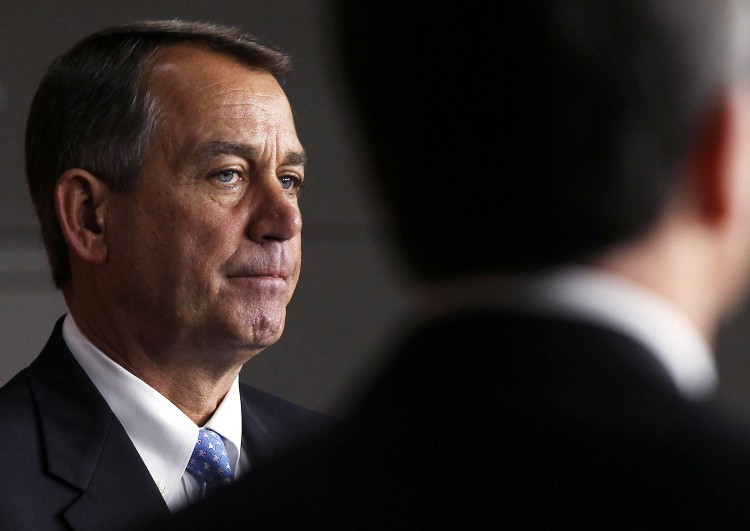Boehner Plan Gains Support from House Republicans
House Speaker John Boehner’s debt-reduction plan appeared to be gaining support among House Republicans as the United States inches closer to the Aug. 2, Treasury-imposed deadline for raising the debt ceiling.

Speaker of the House Rep. John Boehner (R-OH) listens during a news conference July 28, on Capitol Hilll in Washington, DC. The House is set to vote today on Boehner's debt-limit plan which will likely face opposition at the Senate and veto threat from Alex Wong/Getty Images
|Updated:





